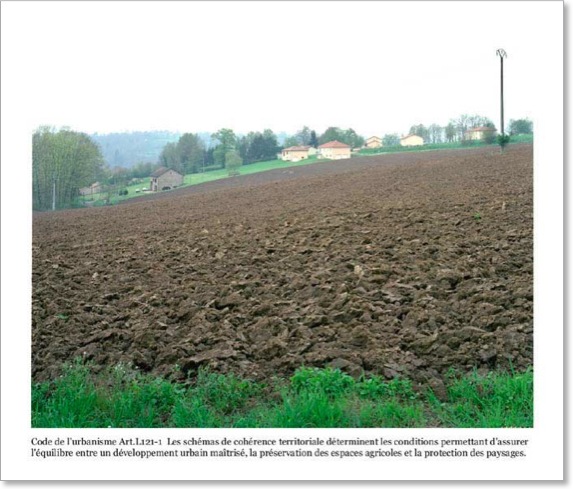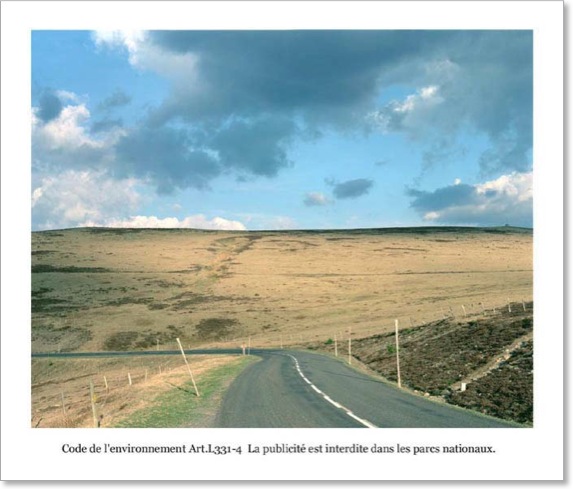Contre-nature Lois & paysages
Agains-nature Laws & landscapes
silverprint mounted on aluminium + adhesive lettering12 photographs - 1,20 x 1,40 m - 2002
Landscapes are trendy, they are
everywhere.
They are protected, cultivated, sold, visited, exploited,
consumed … and exhibited.
It is also the place of interests
conflicts, the object of desires. Between the
agricultural output, the adventure's lands, the
idyllic rest, the forestry exploitation, the area to
build : it is difficult to reconcile the landscape of
the farmer, with that of the walker or the touwn
planer. It is necessary to regulate the pleasure of it
!
The word “landscape”, eminently emotional and cultural,
thus appears now in the legislative text. Particularly with
the recent creation of the French Code of the environment
(2000). The law directs and creates the landscape;
directly, with an aesthetic, patrimonial or ecological
conception; or indirectly, with an economic and productive
approach. Sometimes, former laws which deeply impressed
their landscaped transformations (cf.: the forest of the Landes
created under Napoleon III); sometimes recent texts which try to
repair the past errors (plantation of hedges after the
excesses of the regrouping of lands), or texts turned to “the future
generations”. The relation between the preservation of the
rural environment, the tourist exploitation and the
preservation of the heritage is very often the stake.
Witness of the history as
much as revelation of the orientations and contemporary
contradictions, the landscape is the image of the society
which lives in it. Contre-nature
suggests, by associating
photos and French texts of laws, the different point of
views that we have in France on the territory, with its
ambiguities, its oppositions and always with the same
happiness in front of the crazy herb which
steals.


>> See the 12
photos.
design and realization >
arno fabre
diffusion
> c15d
production >
Le Fresnoy, studio national des arts
contemporains - 2002.